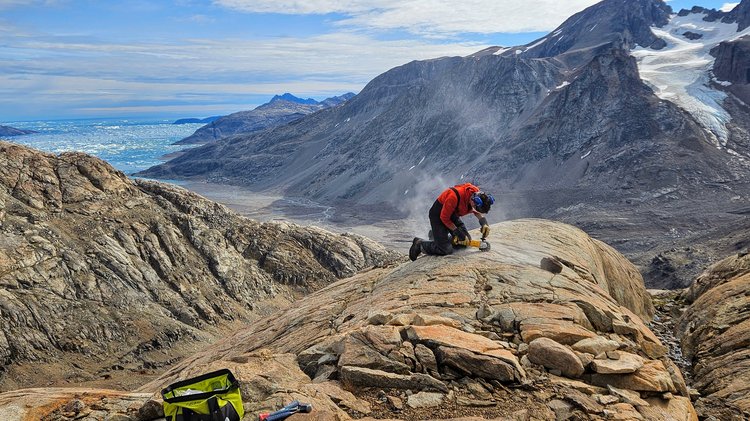ARC focuses on the melting cryosphere and its feedback on the climate system, as well as its effects on ecosystems and societies. This involves research, education, and collaboration with business and industry, as well as consultancy services to national and international government agencies and institutions, local communities, and the general public. ARC works both nationally (Hindsgavl initiatives) and internationally (Arctic Science Partnership) to increase collaboration and ensure a coherent effort in the Arctic region.
The Arctic is borderless, and so is ARC. The cluster recognizes the need to adopt an interdisciplinary approach to adequately address contemporary and critical Arctic issues. Therefore, a large number of researchers from a wide variety of disciplines have joined forces to investigate effects of climate changes on the Arctic cryosphere, ecosystems, as well as their impacts on future Arctic livelihoods and societies. ARC also looks at how a melting Arctic will affect connected global processes and social systems. Joint field campaigns constitute a focal point in the work of ARC and an effective means to unite and integrate the different academic fields involved, sparking interdisciplinary collaboration and synergy.

To ensure future generations’ knowledge and expertise in Arctic matters by contributing to Arctic education in close cooperation with Greenland Institute of Natural Resources
To contribute to talent development within Arctic matters by hosting PhD-students and postdocs
ARC takes an active share in a large, international research program as a leader of the Arctic Science Partnership (ASP) (https://asp-net.org/) where a large-scale international collaboration ensures a coherent effort in the Arctic region.
ASP fosters critical exchange of knowledge and provides scientists with a joint logistical platform, drawing on the numerous facilities administered by each institution, including research vessels, field stations and laboratory facilities. In addition, ASP partners are working closely together on joint Arctic research questions, joint education initiatives and dissemination.
The Arctic is a critical topic in international relations due to climate change and growing global economic interests in the possibilities for establishing new, shorter shipping routes and for extraction of mineral resources. Hence, the Arctic is transforming and re-emerging as a geopolitically important area with new and sometimes contested economic, legal, and governance perspectives on maritime activities. To the international community these changes imply huge possibilities, challenges and obligations. For Arctic societies this entails potential economic benefits but also unknown risks to the environment, biodiversity and the fishing industry. These risks are especially imminent when it comes to potential oil spills, a scenario that gives rise to questions, such as if and how we can minimize the harmful effects of oil spills on ecosystem function and biodiversity as well as the cultural heritage and livelihood of local communities. ARC aims to examine the nonlinear dynamics of a melting Arctic through a domino effect on connected global processes and socio-ecological systems. Climate change effects on the cryosphere are compounded by superimposed industrial impacts. Natural resource exploration, shipping, fisheries, economic development, and the spread of pollutants are just some of the other potential changes sweeping across the Arctic today. Many of these factors interact with each other and with the climate, and have complex impacts on the well-being of local communities, and on the regional and global economy. ARC is working closely together with local communities, the Greenland Institute of Natural Resources, the Dronning Ingrids hospital in Nuuk, local business and fisheries, Defence operating in the Arctic, the Arctic Science Partnership, and the Arctic Council to advance knowledge on climate-environment and human interactions.
Arctic Research Cluster (ARC) is funded by Aarhus University and the two faculties Technical Sciences and Natural Sciences for the five-year period 2026-2030.